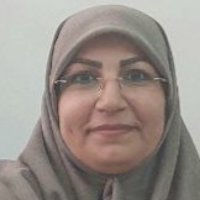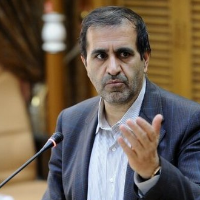Representation of Discursive Conflicts of Gender Equity in Development plans of I.R. Iran
Author(s):
Article Type:
Research/Original Article (دارای رتبه معتبر)
Abstract:
Introduction
The planning system in Iran is influenced by the ruling political and social discourses, and that what place such discourses hold for subjects and categories is represented in development programs. Among the very important subjects is the subject of women. According to the meaning and identity the subject of women has in the discourse of the executive states of the development, the signifier of gender equity is either considered to be the same as in the planning system or is left idle . Hence, it is the attention or inattention of the development programs to the gender equity that could lead to its establishment or continuation of gender inequity.Method
Using the discourse analysis of Luclau and Mouffe, the representation of discursive conflicts of gender equity in the Development plans was investigated.Findings: Development plans after the revolution, in terms of paying attention to the subject of women, have been by the ongoing discursive conflicts in the political arena. The analyses showed that in the first and second programs, educational justice and the imminent implication of health equity have been taken into consideration. The signs of increase of occupation chances for women and their occupational promotion, paying attention to gender combination of labor force supply, promotion of womens occupational skills by referring to signified of economic equity; and the signs of essential reforms in legal affairs, facilitating the legal and judicial affairs of women, legal services, protecting the women rights, reviewing the rules and regulations and legal preparation for removing violence against women, organize the semantic system of legal equity in the reforming discourse. The Planning for a Health Promotion and Lifestyle Health Education Program statement is an inadequate indication of health equity and access to equal educational opportunities is a representation of educational equity which the discourse of political development has included it in the third and fourth programs. In the fifth program of development, the signs of promotion of womens health and establishment of the House of Health for girls and women are taken into consideration as hygiene equity. Although development and the organization of economic-subsistence affairs represents the economic equity, since it emphasizes the female-headed women and the household occupations, it doesnt contain the whole sense of economic equity. The statements of supply of the required trainings appropriate to the role of boys and girls and guaranteeing the access to equal training opportunities appropriate to gender refers to the signified educational equity and cover its sense totally. Also, the discourse analysis of gender equity in the sixth program of development indicates that the discourse ruling the sixth program of development is formed with pivotal signs of gender equity and with the signified occupational chances, health & hygiene, literacy of women, reform of legal system (in the family domine) and participation in decision-making and decision-taking(not the opportunity of political equality). These semantic signs contain economic equity, hygiene equity, educational equity, the imperfect implication of legal equity and inadequate political equity.
Discussion
Regarding the findings, it can be said that gender equity is one of the semantic signs of discourses of reform and moderation, with the conception of equality as analogy. . Hence, the gender sensitivity of the third, fourth and six programs of development should be considered, as if the structural limitations have exposed them to enmities and the critics of the rival discourses which prevents the programs from a complete implementation. Keywords:
Language:
Persian
Published:
Social Welfare Quarterly, Volume:17 Issue: 66, 2017
Pages:
107 to 148
https://magiran.com/p1805073
مقالات دیگری از این نویسنده (گان)
-
Short-term architecture of Qajar period houses: content analysis of Europeans' travelogues
MohammadReza Javadi Yeganeh, Hosna Esmaeelbeigi *, Hamed Mazaherian
Journal of Community Development, -
تحلیل جایگاه زنان در گفتمان امام خمینی (ره)
منوچهر رشادی، *
پژوهشنامه انقلاب اسلامی، زمستان 1402 -
Recognizing the Challenges of 150 Years of Development in Iran based on theory "Unbalanced Distribution of Power in the Structure of the Social System"
Mohammadjavad Zahedi Mazandarani *,
Journal of Social-Economic Development Studies, -
Structural Equation Modeling Factors Affecting Styles and Values and Components of the Circular Structure of Schwartz Values
Farahnaz Pirooz, *, Shahla Kazemipour
Journal of Islamic Lifestyle Centered on Health,



